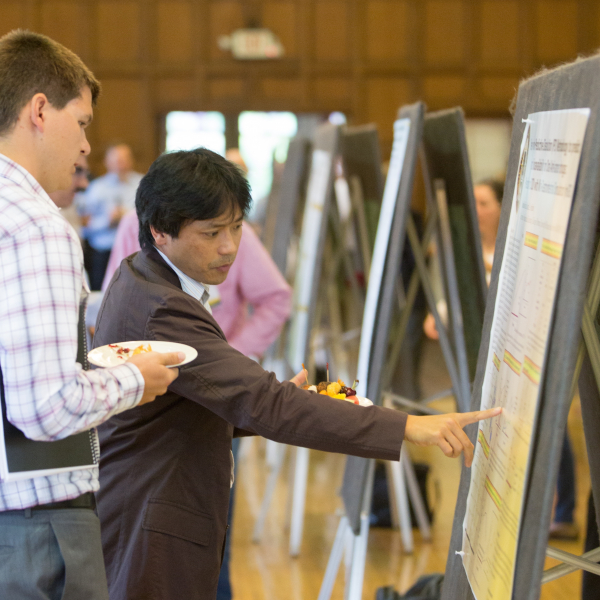Dissolution Conference Sets Tone and Direction for the Development of In Vivo Predictive Dissolution Methodologies

In August, the College hosted its first annual In Vivo Predictive Dissolution Conference, bringing together experts from around the globe with representatives from academia, industry, and government in the fields of clinical science, engineering and basic science. This wide-ranging group of thought leaders presented on the state of current research in biopredictive dissolution science and methodology.
According to Dr. Gordon Amidon, “The starting point for in vitro methodology development is consideration of the in vivo gastrointestinal environment. This includes GI motility and transit; shear rates and hydrodynamics; fluid volumes, properties and composition; and spreading of drug along the absorbing surface area as well as drug and dosage form variables determining drug product transit, drug release, and presentation to the intestinal membrane.”
Dr. Amidon’s aspirations for the conference extend beyond presentation of current research. His vision for this unique meeting of experts and participants was the development of a white paper on the research needed to modernize regulatory standards and inform future regulations. Dr. Amidon believes this collaborative effort will provide a platform for optimizing and monitoring the oral drug product performance field over the next 10-20 years.
This conference highlighted current, highly active areas of research and future research needs for the development of in vivo predictive dissolution (IPD) methodologies for oral immediate release dosage forms. Topics included: dissolution methodologies, gastrointestinal physiology and variables, drug and formulation factors, in vivo predictive media, in silico model development, technology tools, bioavailability, and permeability assessment. Following the conference, speakers participated in break-out sessions to discuss and prioritize future needs and opportunities in the development and extension of IPD methodologies, in vivo predictive media, gastrointestinal variables, and in silico methodology enhancements.
The end result of the conference will be a research “White Paper” pointing out the areas in need of further advances in order to propel the field of pharmaceutical and regulatory science into the 21st century of computational methodology.
Read more about the conference.




